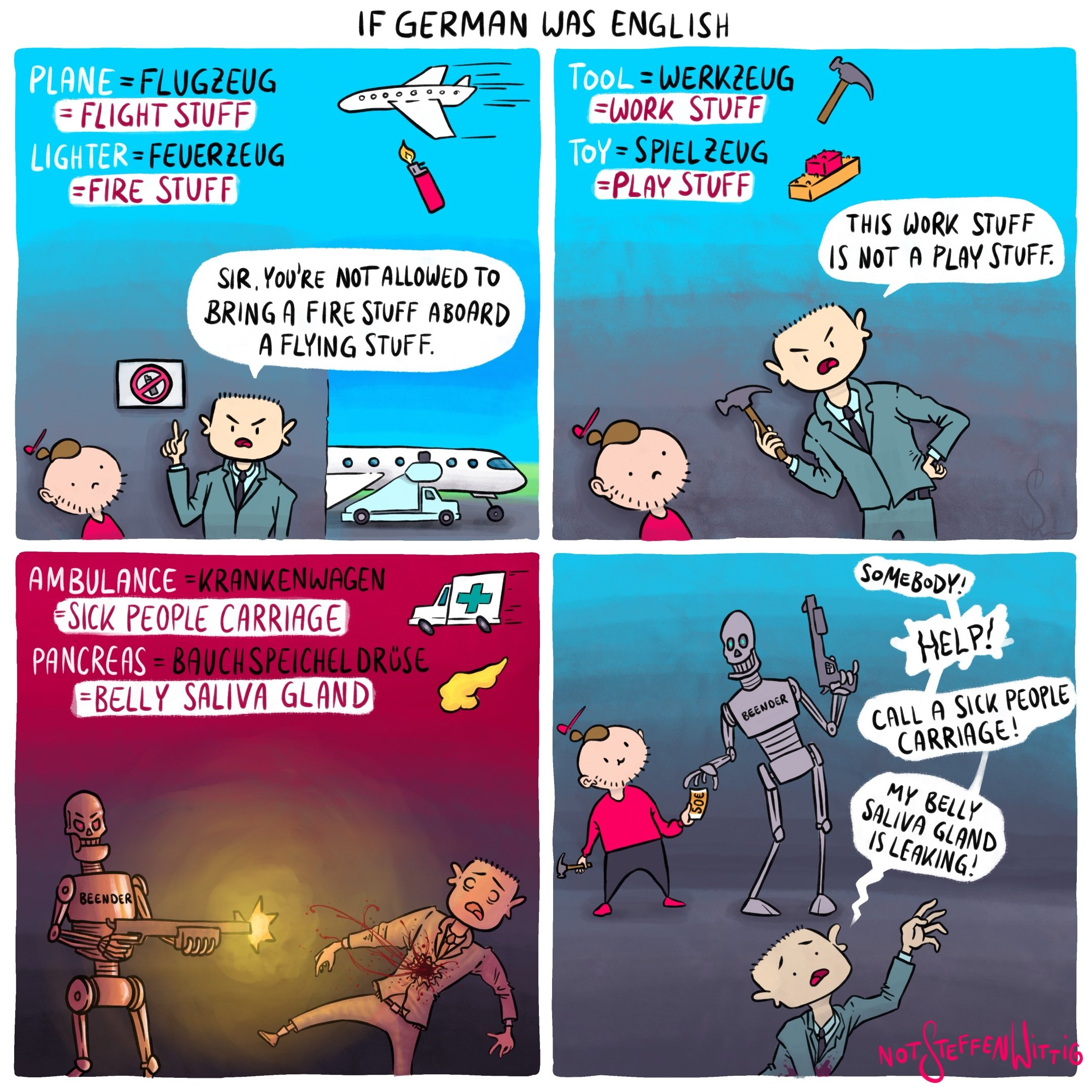this post was submitted on 24 Jan 2025
560 points (96.8% liked)
Comic Strips
17349 readers
3382 users here now
Comic Strips is a community for those who love comic stories.
The rules are simple:
- The post can be a single image, an image gallery, or a link to a specific comic hosted on another site (the author's website, for instance).
- The comic must be a complete story.
- If it is an external link, it must be to a specific story, not to the root of the site.
- You may post comics from others or your own.
- If you are posting a comic of your own, a maximum of one per week is allowed (I know, your comics are great, but this rule helps avoid spam).
- The comic can be in any language, but if it's not in English, OP must include an English translation in the post's 'body' field (note: you don't need to select a specific language when posting a comic).
- Politeness.
- Adult content is not allowed. This community aims to be fun for people of all ages.
Web of links
- [email protected]: "I use Arch btw"
- [email protected]: memes (you don't say!)
founded 2 years ago
MODERATORS
you are viewing a single comment's thread
view the rest of the comments
view the rest of the comments

Isn't English the amalgamation of like 5 different languages and if everything were broken down like this, English would sound just as ridiculous?
I think every language probably sounds silly if transliterated into another language
It's not a transliteration, it's a direct translation. Transliteration is the conversion of one script into another and (Modern) English and German use the same script based on Latin. Transliteration would be дружба - druzhba.
By the way, in many German online communities, it's a meme to take English expressions and directly translate them and is called Zangendeutsch. Just go to any of the ich_iel communities here and you can see it :)
a language would sound the same when transliterated to another language
Eh, not totally. Some languages have phonemes that are completely absent in other languages, and some phonemes (especially vowels, though sometimes consonants, eg: "r") are different enough that a transliteration can never do them justice. Although, I guess transliterating into the international phonetic alphabet would do the trick...
You’ve clearly never heard of Torpenhow Hill, which translating all to English, means Hill Hill Hill Hill.
I only did three months of research for this comic. Guess it still wasn't enough. Verdammte Bullenscheiße!
Common rookie mistake everyone knows you need four months
Do 3 months of research on English. I'm sure the comic will be good too :)
The Anglo-Saxons loved compound words. The vocabulary of Old English (and just before that) was very small, so putting words together was necessary for building more complex concepts.
English, a Germanic tongue carried into Britain by the Angles, Saxons, Jutes, and Frisians, has been influenced by:
My favorite English compound word is bookkeeper. 3 consecutive double letters.
My favourite stop on the London Underground is Knightsbridge - 6 consecutive consonants.
I once saw on an italian restaurant menu the word Taramasalata. I am not sure why but it was very amusing to me that every second letter was 'a'
We can do that with the first sentence and flip it into German, replacing "lighter" with "fireworks". We get:
"Sie dürfen die Feuerarbeiten nicht mit in die Luftebene nehmen."
A lot of German speaking communities online do translate English loanwords into German words, often with the intention to create this funny effect.
Coincidentally, I just watched a video on that sort of thing the other day that was pretty neat: Anglish: English without the 'foreign' bits
I've loved Anglish for a long time, but my favorite example is Uncleftish Beholding a scientific paper written in Anglish. "Stuff" turns out to be a pretty logical way to explain shit.
Close, English is the unholy amalgamation of 666 incomplete languages, forged in the bowels of the great vowl shift but incomplete as an affront to God and the eighth deadly sin.
English is a hilarious mess. The word "receite" originated from Latin but came to England through France at which point it had mutated to modern pronunciation as "recu", so they shoved a few extra and silent letters in there and spelled it "receipt" to pretend they got it from Latin even though they kept pronouncing it more French.
I'm confused. The modern word in french is "reçu", which is pronounced something like "ruhsue". The English word is "receipt" but pronounced something like "ruhseet". There's no "ooh" sound in the original Latin, so it's not just a matter of adding extra or silent letters in there, it's a complete change to the vowel sounds, plus the re-addition of a 't' sound.
I oversimplified a bit! Sorry!
Words always shift over time and borders. The words "recu" and "receive/receipt" are pretty close and used to be closer. To be more accurate it was "receite" when they adopted it from French. Compared to Latin "recepta" which has a hard P in it. So adding "P" from Latin to the spelling as "receipt" but leaving the pronunciation as Anglo-French "receite" was the most silly part.
Well, English is always silly with the various silent letters. The worst are the silent letters that nonetheless change the pronunciation of the non-silent letters nearby.
Like, I saw a place today named "something-valu", with no "e" on the end. With no "e" it should really be pronounced "valoo". Adding the "e" somehow changes it to "valyoo". Rather than changing the vowel sound, it adds a consonant-like /j/ sound (IPA) to the start of that syllable.
There is a form of English called Anglish which tries to remove all non-germanic words, I think some examples are wordbook for dictionary, becleft for atom, sourstuff for oxygen and birdlore for orinthology
Ah, you beat me to it!
https://anglish.org/wiki/Anglish